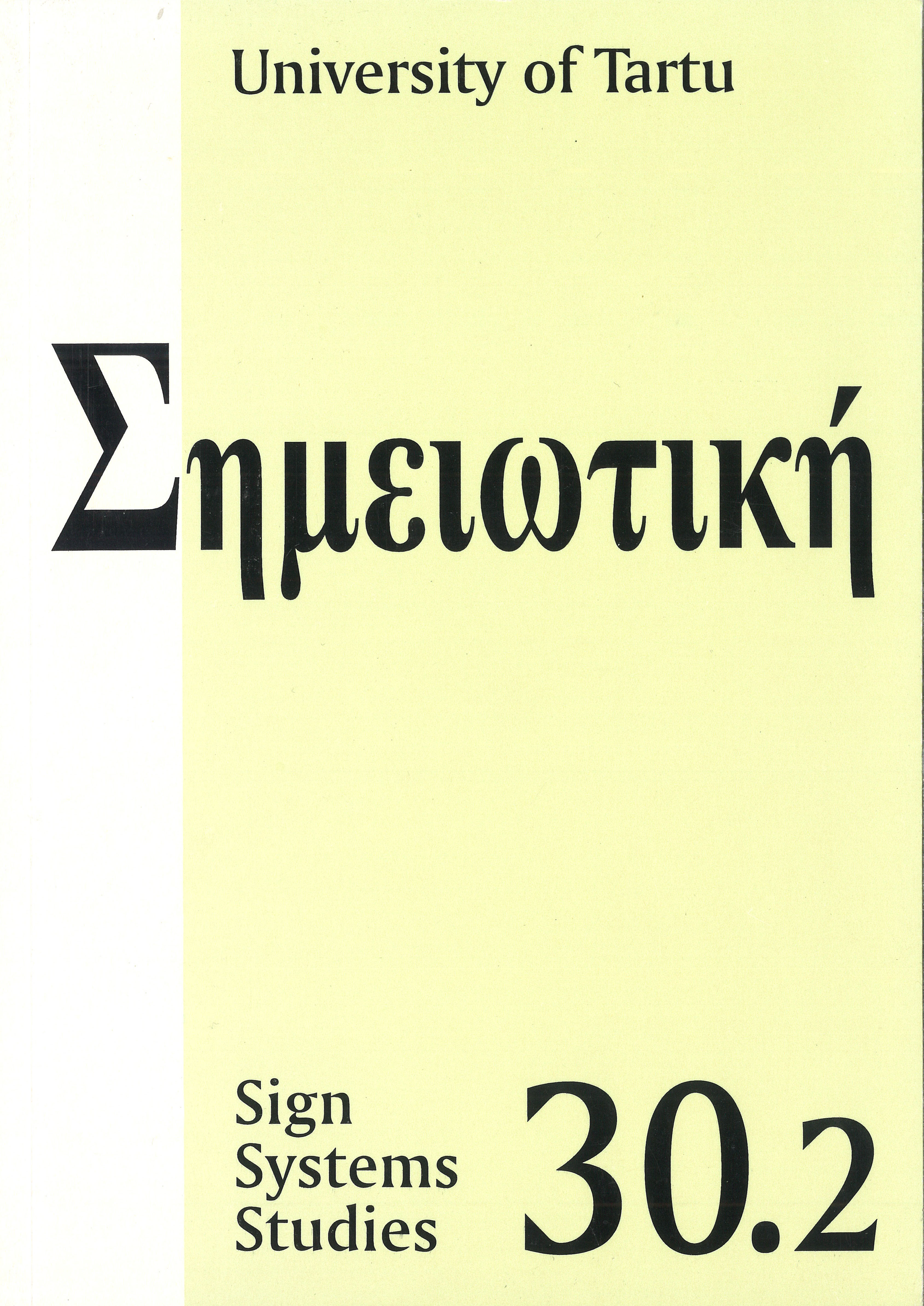Lotman and cultural studies: The case for cross-fertilization
DOI:
https://doi.org/10.12697/SSS.2002.30.2.04Abstract
This paper seeks to evaluate the extent to which Lotman’s theoretical works could provide a conceptual articulation to the project of British and American cultural studies (CS). Just as CS, Lotman operates with an extensive concept of culture, albeit one mostly limited to nobility culture and focused on the past. His late works can be seen to articulate a semiotic theory of power: his emphasis on the relationship between center and periphery recalls the infatuation with marginality that underpins CS. Lotman shares the (post) structuralist premise about the primary role of discourse in founding reality. Yet his emphasis on the natural striving of culture toward diversity mitigates the subject’s dependence upon discourse. Thus, subjects act on their striving toward autonomy by playing discourses against one another, recoding them in an act of autocommunication that generates novelty in the process. Even though it denies the grand narrative, Cultural Studies emphasizes class, gender, and race differences. Lotman’s concept of the semiosphere emphasizes the ad hoc foundation of group identities, their emergence out of an intrinsic recoding of extrinsic codes, and the circulation of texts and values among groups. Lotman doesn’t privilege any sort of group identity and therefore offers a flexible framework applicable to a broader range of groups. In that sense he offers an alternative to Gramsci’s notion of the rootedness of groups in class realities (which underlies early CS).


